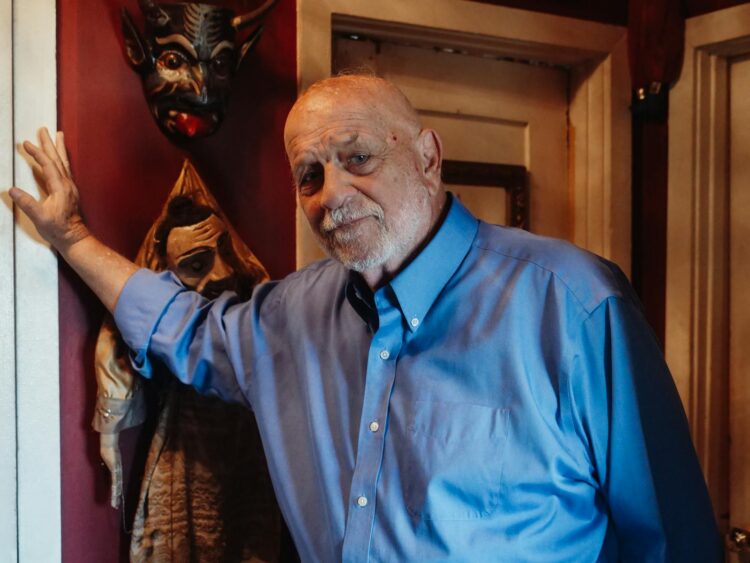
The Baby Boomer generation, born roughly between 1946 and 1964, has shaped politics, culture, and economies for decades. Yet despite their influence, boomers often get painted with broad stereotypes—sometimes flattering, sometimes harsh. While some ideas hold kernels of truth, many are oversimplifications that miss the diversity and complexity of this generation. Here are 15 common misconceptions about boomers that still circulate today.
All Boomers Are Wealthy

Because many boomers bought homes decades ago when prices were lower, people assume they’re all financially secure.But not every boomer built wealth. Many face medical debt, limited retirement savings, or jobs that didn’t come with strong pensions. While some boomers benefited from postwar prosperity, plenty struggle with bills, just like younger generations.
Boomers Don’t Understand Technology

It’s common to joke that boomers can’t use smartphones or social media. The truth is more nuanced. While some may be slower to adopt new tools, many use technology daily for work, shopping, or staying connected with family. Boomers were the first generation to embrace home computers, after all. They may approach tech differently, but they’re far from helpless.
Boomers Caused All Today’s Problems

Younger generations often blame boomers for housing crises, climate change, or inequality. While it’s true that some policies from their era contributed, it’s simplistic to hold an entire generation responsible. Boomers are not a monolith—many protested wars, fought for civil rights, and pushed for environmental reforms. Blame belongs more with systems and leaders, not every individual born in a certain timeframe.
Boomers All Had Easy Lives

The idea that every boomer had a comfortable path with cheap houses, stable jobs, easy retirements ignores reality. Many lived through recessions, factory closures, the oil crisis, and job outsourcing. Some built stability, yes, but others faced poverty or lifelong financial struggle. To paint all boomers as privileged is to overlook the ones who endured hardship.
Boomers Don’t Care About the Environment

Younger activists sometimes see environmentalism as a new cause, but boomers were at the heart of the first Earth Day in 1970 and early clean-air and clean-water movements. Many fought for recycling programs, wildlife protections, and sustainable practices long before climate change was headline news. Not every boomer is eco-conscious, but many have been advocates for decades.
Boomers Are All Conservative

Because boomers are older, people assume they all lean politically conservative. In reality, boomers hold a wide spectrumof political views. Some are traditionalists, but many remain liberal or progressive, shaped by the civil rights and feminist movements they lived through. Age doesn’t lock someone into one ideology, and boomers are as politically diverse as any other generation.
Boomers Don’t Care About Younger Generations

The stereotype is that boomers dismiss millennials and Gen Z as “lazy” or “entitled.” While some repeat those tropes, many boomers actively mentor, support, and advocate for younger people. As parents and grandparents, they often invest deeply in the next generation’s well-being. Broad brushstrokes ignore the countless boomers who sacrifice time and money to help their families thrive.
Boomers Had Free College and No Debt

It’s true that tuition was much cheaper decades ago, but not every boomer went to college. Many entered the workforce directly after high school, often in demanding jobs. Those who did attend sometimes worked multiple jobs to pay their way. College debt wasn’t as heavy as it is now, but higher education wasn’t automatically accessible or free for every boomer.
Boomers Don’t Use Social Media

It’s easy to picture social media as only for the young, but boomers are active online—sharing photos, reconnecting with old friends, and following news. Platforms like Facebook became popular in part because of older users. Boomers may not dominate TikTok trends, but they’re present across digital spaces, and many use technology to maintain vibrant social lives.
Boomers Had It All Handed to Them

The image of boomers as endlessly lucky ignores the effort many put in. They often worked long hours, sometimes holding multiple jobs, to build stability. Housing and wages were better balanced in some eras, but boomers also faced inflation, layoffs, and rising medical costs. Many built what they have through decades of persistence, not handouts.
Boomers Don’t Care About Mental Health

Some assume older generations dismiss therapy or self-care. While mental health conversations weren’t as open in the past, many boomers now embrace counseling, mindfulness, and wellness practices. They’ve lived through cultural shifts that destigmatized mental health, and plenty actively support these changes. The idea that they all shrug it off as “weakness” oversimplifies a generational shift that many helped normalize.
Boomers Are Out of Touch with Culture

People sometimes think boomers don’t understand current music, movies, or fashion. Yet they were the generation that gave us rock and roll, the counterculture, and much of modern pop culture’s foundation. Many still attend concerts, keep up with trends, and enjoy blending the old with the new. They may not embrace every fad, but they’re far from culturally irrelevant.
Boomers Don’t Struggle Financially in Retirement

There’s an image of boomers enjoying cushy retirements with travel and golf. But many are still working past retirement age because of rising healthcare costs, weak pensions, or lost savings. Some help adult children financially, stretching their own budgets thin. While some are comfortable, plenty are navigating retirement with anxiety, not luxury.
Boomers Are All the Same

The word “boomer” lumps nearly 20 years of people into one label. Someone born in 1946 had a completely different experience than someone born in 1964. Early boomers grew up in the shadow of World War II, while later ones came of age during the Vietnam War and civil rights movement. Their lives can look radically different, making sweeping generalizations unfair.
Boomers Don’t Change Their Minds

Another misconception is that boomers are set in their ways and unwilling to learn. In reality, many continue to grow, adapt, and challenge their old assumptions. They’ve lived through decades of cultural change, and some have shifted perspectives on politics, family, and faith along the way. Being older doesn’t mean being rigid—many boomers embrace lifelong learning.

